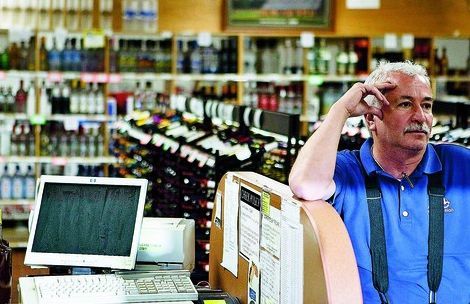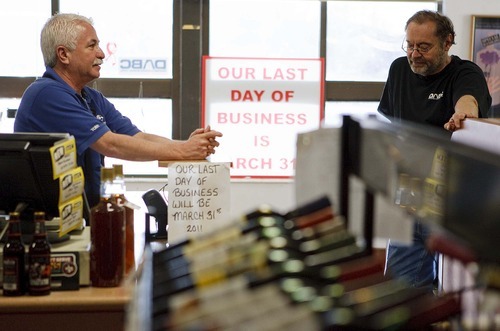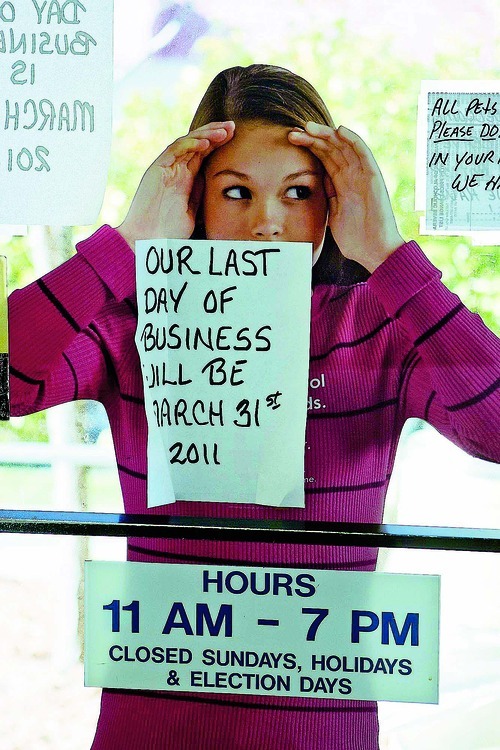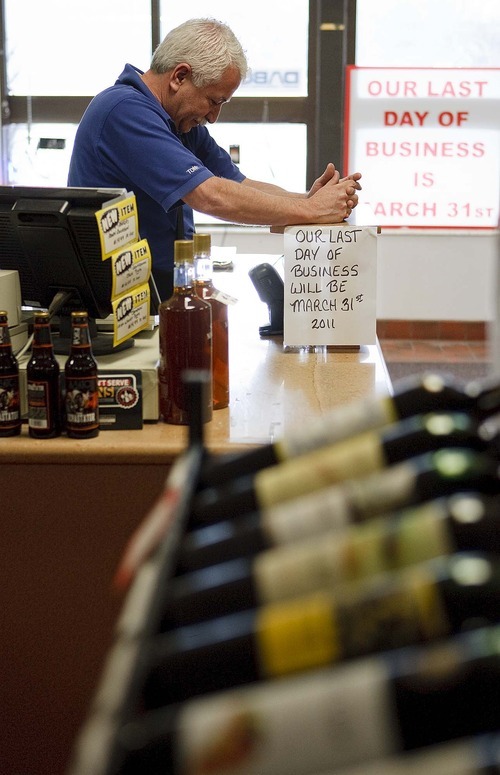This is an archived article that was published on sltrib.com in 2011, and information in the article may be outdated. It is provided only for personal research purposes and may not be reprinted.
A closed liquor store in Salt Lake City is costing the state money in lost sales, despite lawmakers' predictions that Utah regulators would save money in operating costs by shutting down smaller alcohol outlets.
These are the preliminary findings for April from the state liquor store at 1457 S. Main St., which closed on March 31.
Although surrounding stores did pick up business, the state is losing about $2,364 in decreased daily sales, representing a 25 percent drop in revenue generated by the store, according to a report by the Utah Department of Alcoholic Beverage Control (DABC).
Sen. Ben McAdams, D-Salt Lake City, said he is taking the findings to legislative colleagues in hopes that lawmakers will consider reopening the store.
The Salt Lake City store was the first of several outlets set for closure in a cost-cutting move earlier this year. A public outcry forced lawmakers to keep open all but the Main Street store, at least through February.
Liquor-control commissioners had repeatedly warned that surrounding stores would not capture all the business when smaller outlets closed. Customers would instead buy beer from grocers, which has a smaller state markup than liquor or they would bootleg alcohol from other states, commissioners had predicted. But lawmakers looked to legislative auditors, who had recommended closing as many as nine smaller outlets along the Wasatch Front and in southern Utah. Customers would have no choice in the state-run liquor monopoly but to drive to larger stores, auditors had said.
Neither side had conducted any studies to support their claims, but preliminary findings on the Main Street closure seem to support the commissioners' stance that overall revenues would decline.
In April, the first month of the Main Street closure, stores at 205 W. 400 South and in Sugar House and on Miller Avenue together saw increased daily sales of $7,125. Those sales, however, fell short of the daily average receipts totaling $10,400 for the Main Street store, according to a DABC report released to McAdams.
The findings, which looked only at daily sales, did not take into account bond payments on the Salt Lake City store, which will not be paid off until 2019.
Before it closed, the store rang up sales of nearly $3 million annually, while doling out about $216,000 in wages and other operating costs. Profits to state and local treasuries totaled $1.3 annually.
This fall, a legislatively mandated study will be conducted to identify any possible efficiencies or changes that could be made in DABC operations, Gov. Gary Herbert had said. After that $100,000 study is conducted, the Legislature "will have to choose whether to appropriate more funding to prevent the closures of the stores," he said.
Twitter@DawnHouseTrib









